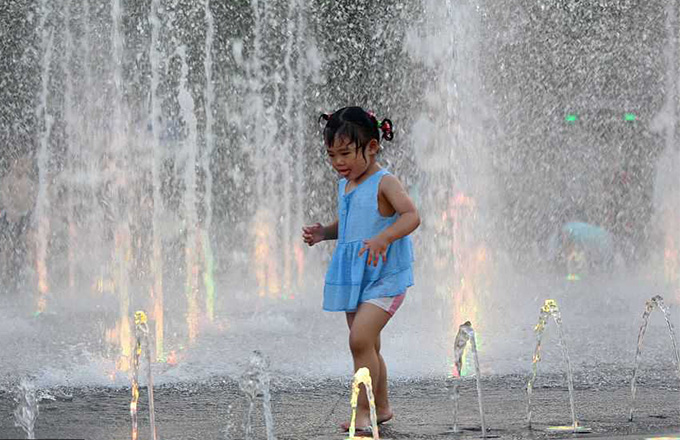Jan 11—22,1925: The 4th National Congress of the CPC is held
Jan 11—22, 1925: The Fourth National Congress of the CPC is held in Shanghai
20 delegates representing 994 Party members attended the Congress. Grigori Voitinsky as the representative of Comintern attended the meeting. The Congress clearly proposed the issues on the leadership of the proletariat in democratic revolution and worker-peasant alliance, making a complete stipulation on the task of the democratic revolution. The Congress adopted the "Declaration on the Fourth National Congress of the CPC," the "Second Amendment of the CPC" and 11 resolutions. The Congress also elected the new Central Executive Committee (CEC) consisted of 9 members of the Central Bureau and 5 alternate members of the Central Committee, with Chen Duxiu as general secretary of the CEC.
Jan 11—Feb 7, 1962: The CPC Central Committee holds an enlarged working conference in Beijing
More than 7,000 people attended the conference, including the central, provincial, prefectural and county officers and principals from large factories and army (also called "The 7000-People Congress"). Liu Shaoqi, on behalf of the Central Committee, made a written report and speech, summing up the experience and lessons of socialist construction since 1958 and pointing out the major shortcomings, mistakes and reasons. Mao Zedong made a speech, focusing on issues of democratic centralism and deepening the understanding of the laws of socialist construction, and made a self-criticism. Moreover, Deng Xiaoping and Zhou Enlai, representing the CPC Central Committee and State Council respectively, made self-criticisms as well, elaborating the main ways to restore Party's fine tradition and to overcome difficulties. The conference played a positive role in overcoming its bad style, improving democratic life within the Party, correcting the "Left" mistakes in actual work and promoting the recovery and development of the national economy.
Jan 11, 1979: The CPC Central Committee makes the "decision on the questions of landlords, rich peasants to uncap and their children's composition"
The "Decision" pointed out that except for the minorities who insist on their reactionary position and have not been reformed yet, those who comply with government regulations with hard work are not be the bad landlords, the rich over the years could be given the equitable treatment of members of rural people's communes. This equitable treatment was reflected in the entering of the school, recruitment, joining the army, joining the league, joining the Party and job assignment according to one's political performance. The equitable treatment also should give to children from families of landlords and rich peasants.
Jan 11, 1982: Deng Xiaoping first proposes the concept of "one country, two systems"
On Jan 11, 1982 Deng Xiaoping met with Chairman of the Chinese Association--Li Yaozi, first proposing the concept of "one country, two systems." Deng Xiaoping pointed out: nine principles for Taiwan are put forward in the name of Vice Chairman Ye Jianying, which is in fact "one country, two systems." Two systems can be allowed. They do not undermine the mainland system, while we do not destroy theirs. National unity is the desire of the whole Chinese nation. This is not only beneficial to future generations, but also a major event in the 5,000 years of Chinese history.
- China issues guidelines to develop 'all-for-one' tourism demonstration zones
- Torrential rain triggers disaster in Southwest China
- Harvest time for wheat reapers in Shanxi
- Over 200 couples marry in Changchun group wedding
- Calligraphy tops other icons of Chinese culture, WeChat data shows

























